Elders in Residence: Learning from those who came before us
Play audio:
With Elders in Residence at North Island College, wisdom walks alongside us. Whether it’s in classrooms, in student lounges, on the land or through ceremony, their presence is felt in countless ways across our campuses.
Each Elder brings a lifetime of experience, strength and cultural knowledge. Some teach language, guide traditional ceremonies and lead workshops. Others walk with students through moments of challenge and triumph, listening without judgment and speaking with care. Whether they’re opening convocation with ceremony or helping shape curriculum, Elders in Residence are a source of steadiness and belonging.
No matter their role, they collectively bridge the past and present, while also linking culture to learning, ultimately shaping an environment where Indigenous knowledge and ways of being are honoured every day.
As we mark 50 years of NIC, we honour our Elders in Residence for their immeasurable contributions to our community and their leadership as the college continues to learn, grow and walk forward together.
Meet the Elders
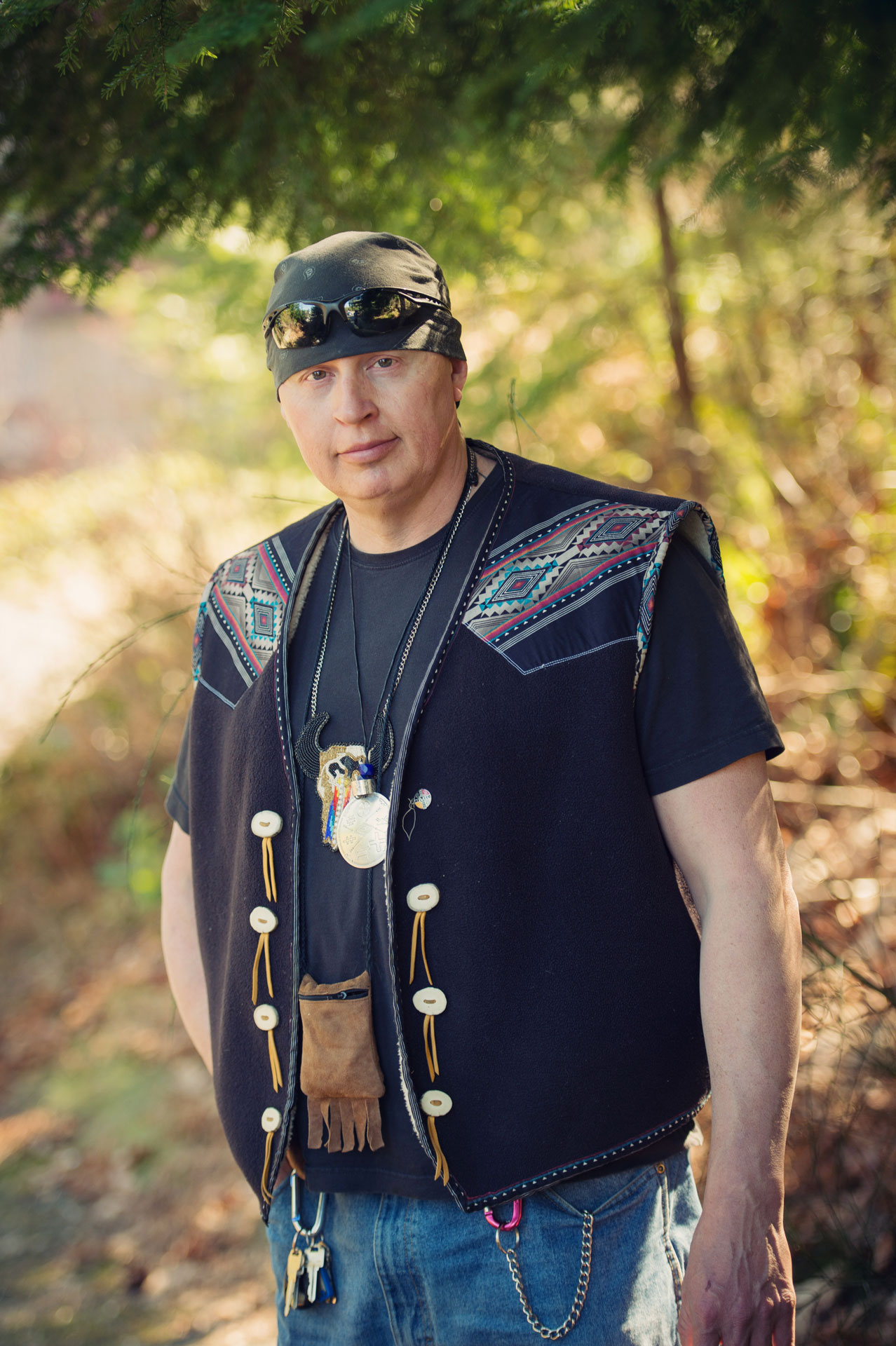
Daryle Mills
Campbell River campus
Daryle is of Cree, Dene, Stoney and Irish heritage. He participates in local cultural events and activities, where he shares his cultural background and Cree and Lakota teachings. His family is from Fort Chipewyan, north of Fort McMurray on Lake Athabasca, where he is known by his Cree name of Tipiskowpisimwikimusqua. A former millwright and trades person, he has provided social services and youth support for the last 16 years.
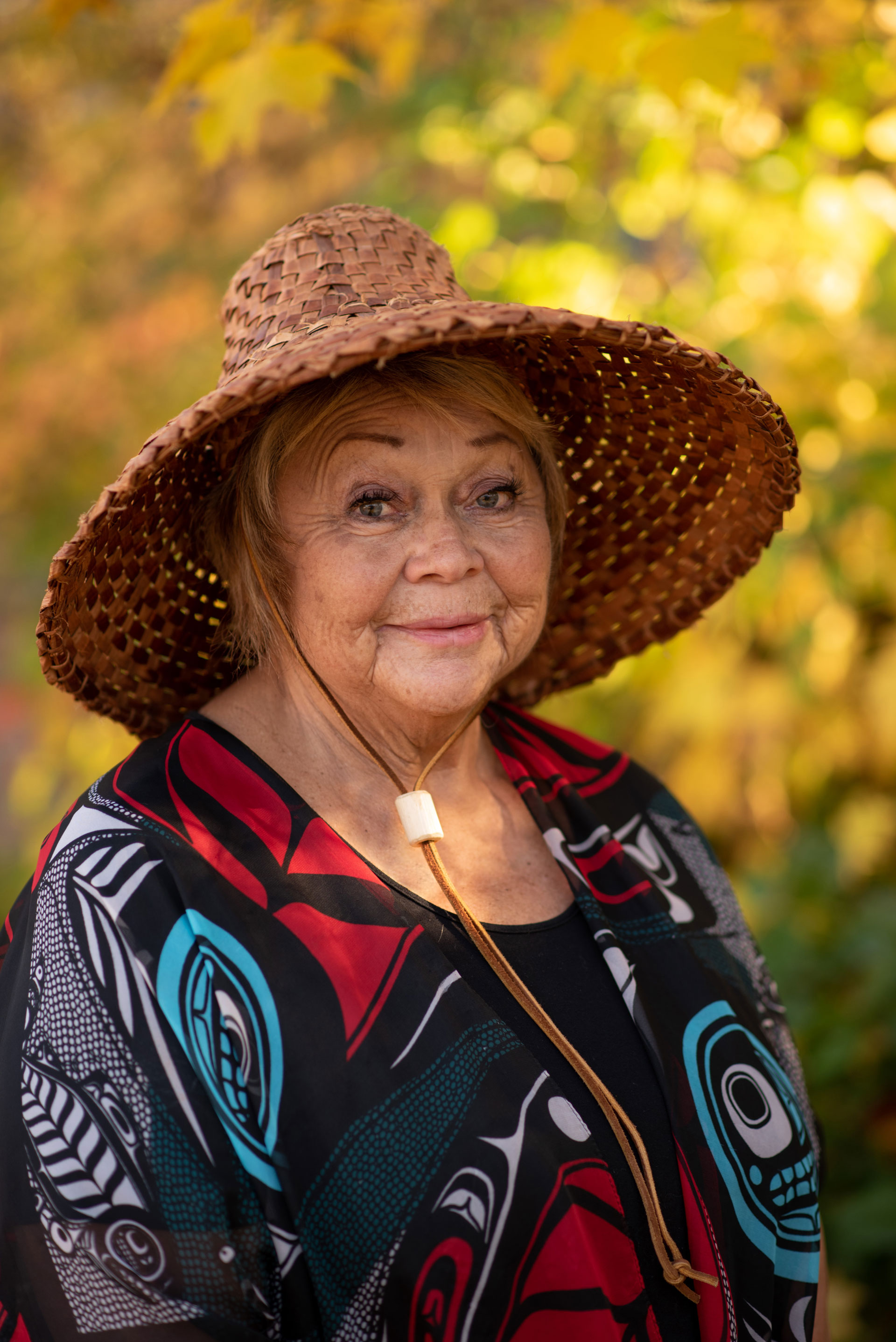
June Johnson
Campbell River campus
Known by her traditional name ‘Um’agalis, June is from We Wai Kai Nation, Cape Mudge. As an elder, she leads workshops in traditional plants and medicine, blanket making, traditional cooking and cedar weaving and also teaches youth the cultural protocol of the Big House and traditional dances. June holds a Developmental Standard Term Certificate in Language Revitalization from the University of Victoria and now teaches Liqwala/Kwak’wala language and culture. She is a grandmother to six.
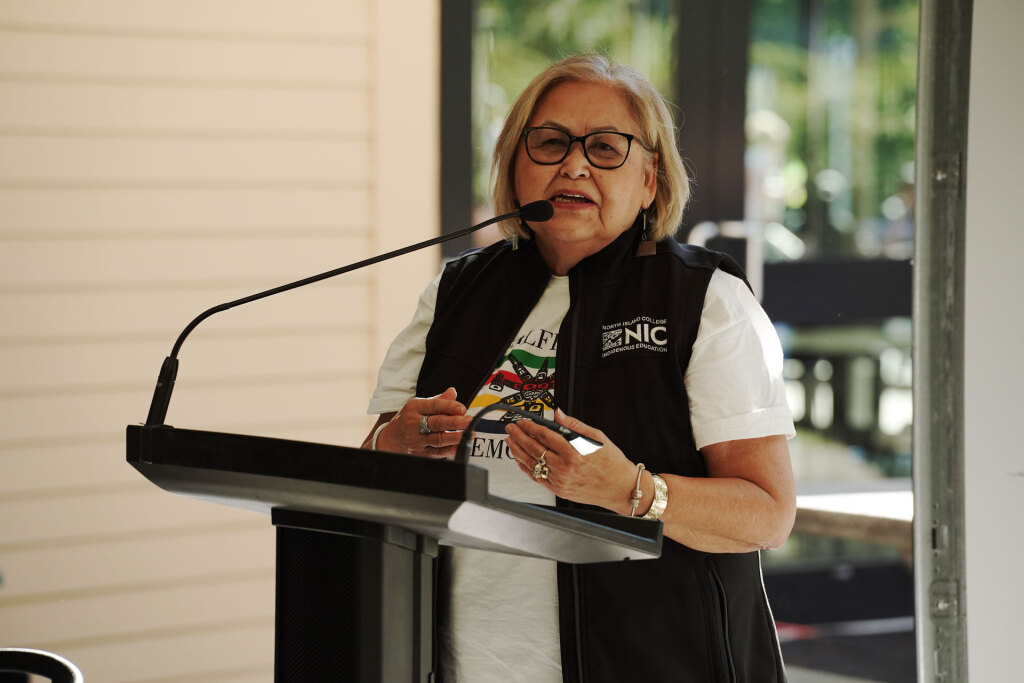
Fernanda Paré
Comox Valley campus
Fernanda’s traditional name is Nagega, and she is of Kwakwaka’wakw, Namgis, K’ómoks and Carrier Sekani ancestry. She makes traditional button blankets, attends numerous potlatches, and believes we must practice and live by our traditional ways with honour and dignity. She has worked as an administration assistant with the City of Toronto’s Finance and Land Use Planning departments. Fernanda and her husband have one son and five grandchildren, and they reside on traditional territory in K’ómoks.
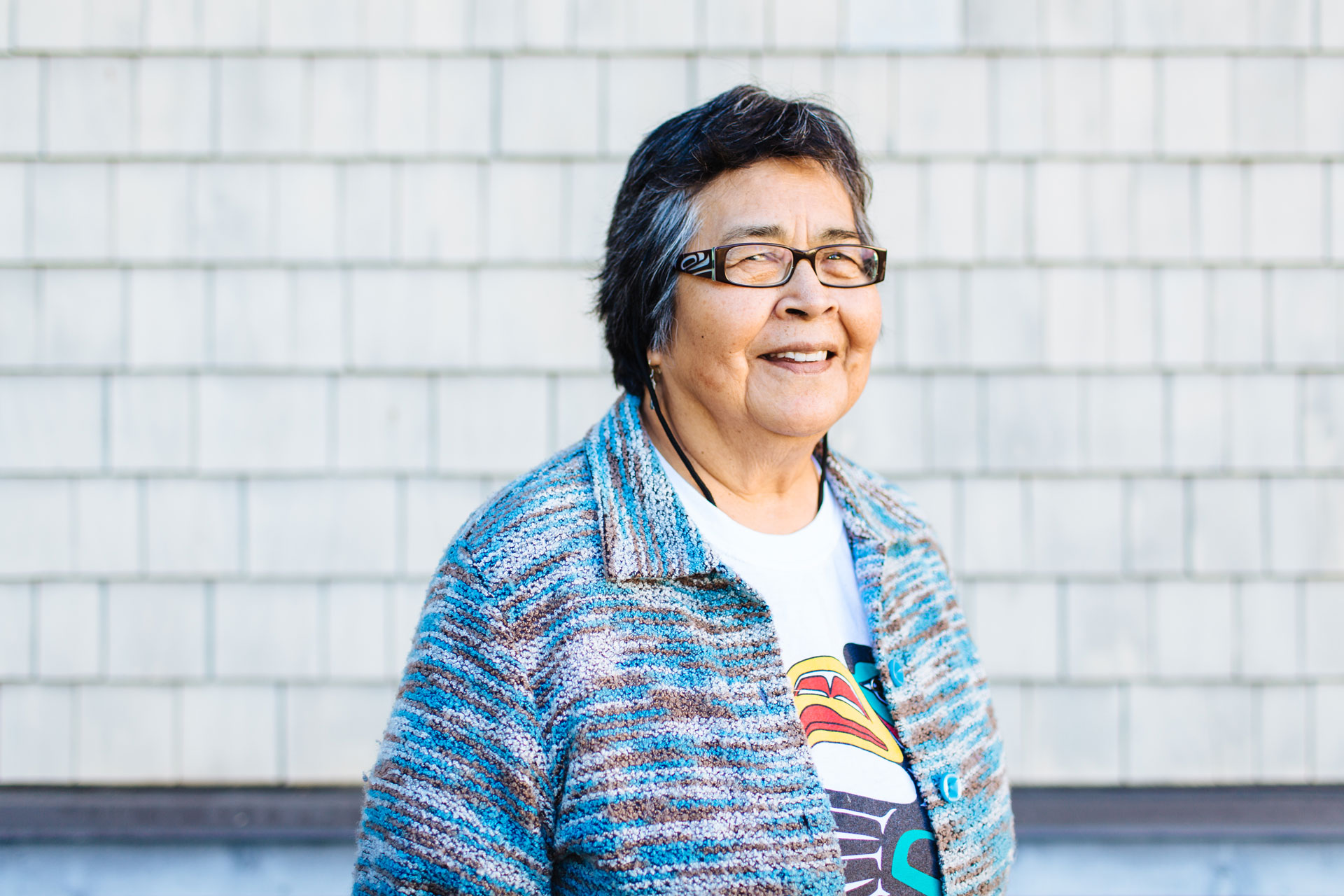
Dr. Evelyn Voyageur, RN, BScN, PhD
Comox Valley campus
Evelyn is of the Kwakwaka’wakw Nation, of the Dzawadainox tribe. She speaks Kwak’wala fluently. She has worked in hospitals and communities in Alberta and BC, as well as taught and developed nursing curricula at UVic and NIC. Evelyn counsels survivors for the Indian Residential School Society. She has received many awards for her contribution to Indigenous nursing, including becoming one of Health Canada’s First Nation and Inuit Branch’s first recipients of the Award of Excellence in Nursing.
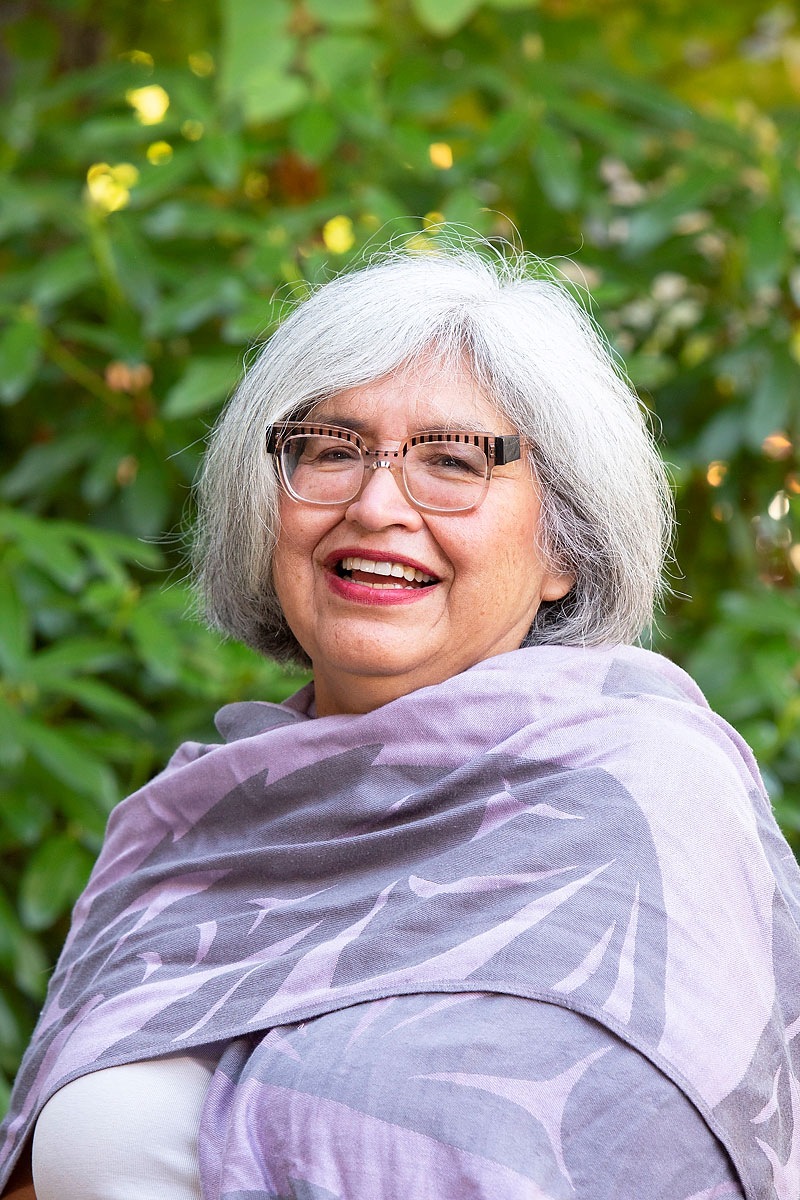
Wilma Gus
Port Alberni campus
Wilma is a member of the Tseshaht, living and working in the Alberni Valley, in her traditional territory, as her family has for generations. She has worked with children, youth, adults and elders, taught in elementary school and at UBC, and has worked for the Ministry of Post-Secondary Education and Future Skills. Wilma has worked at NIC since 1993, and as Elder in Residence, pursues a commitment to promoting student success and works as a team to help students achieve their educational goals.